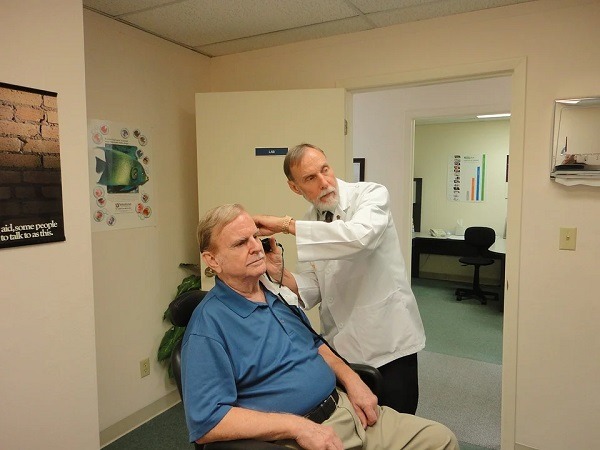Profound hearing loss can limit job opportunities making it more difficult for patients to generate a stable income. In fact, the mean wage of those with hearing loss is about $8,000 less than those with normal hearing and some jobs will not hire those with hearing loss if employers believe that it could be a safety issue.
Therefore, you may be eligible for disability benefits.
Disability payments generally range from around $800 to $1,800 per month. Here is a guide to everything you need to know about disability benefits from eligibility to collecting disability.
Disability Benefits For Hearing Aid Users
If you don’t have cochlear implants, though you do have hearing loss, you must take one of two tests to qualify for disability benefits. These tests are done without hearing aids and while you only have to meet the threshold for one test, you can take both.
The first is the audiometry test. If your average hearing threshold for air conduction is 90 decibels or worse in your stronger ear, and you have a bone conduction hearing threshold of 60 decibels or worse, you will qualify for benefits.
The second test is a word recognition test which requires you to repeat a list of spoken words. If you fail to repeat more than 40% of the words, you will also be eligible for disability benefits.
Both of these tests must be completed by an otolaryngologist (ENT) or audiologist with the supervision of another licensed physician.
In some cases, the social security administration (SSA) will require you to also take auditory evoked response testing. This uses brainwave responses to measure your hearing and comprehension more accurately than pure tone audiometry tests.
Eligibility With Cochlear Implants
If you have cochlear implants, you are eligible for disability benefits for one year following the procedure. This is because cochlear implants typically take time to become accustomed to and your hearing will likely improve over time. However, at the conclusion of that year, you will only be eligible for disability benefits if you score below 60% on the “Hearing in Noise Test” (HINT). This applies for people that have one or two cochlear implants.
Options if You Don’t Qualify
If you don’t meet these requirements, there may still be options for you to receive disability benefits. In general, the government only gives benefits to those that still can’t perform at the level of a person with normal hearing while using hearing aids.
However, you may still be able to fight it if you find that there aren’t any jobs available to you. For example, if your hearing loss is just above the threshold for disability benefits, you likely won’t be able to work in office jobs that require strong communications and work involving hazardous machinery may also be ruled out.
In this case, you might be able to collect disability benefits. However, the SSA can still refuse if they find other suitable jobs.
Other Options
In some cases, those with hearing loss may hire a lawyer to help them obtain disability benefits. Otherwise, if you don’t qualify for disability benefits, but you are still struggling to get a job, consider jobs where you can work mainly online. Many companies now use Zoom for calls, and Zoom can caption speech.
While affording the cost of living may seem challenging, there are plenty of other options if you seek them out.
About the Author
Pauline Dinnauer is the VP of Audiological Care at Connect Hearing, which provides industry-leading hearing loss, hearing testing, and hearing aid consultation across the US.

